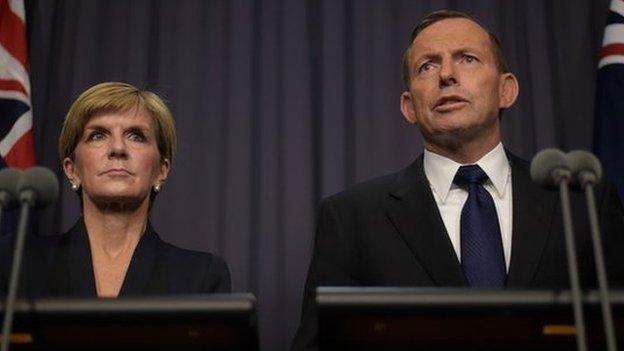Last man hanged: 50 years in Australia without an execution
- Published
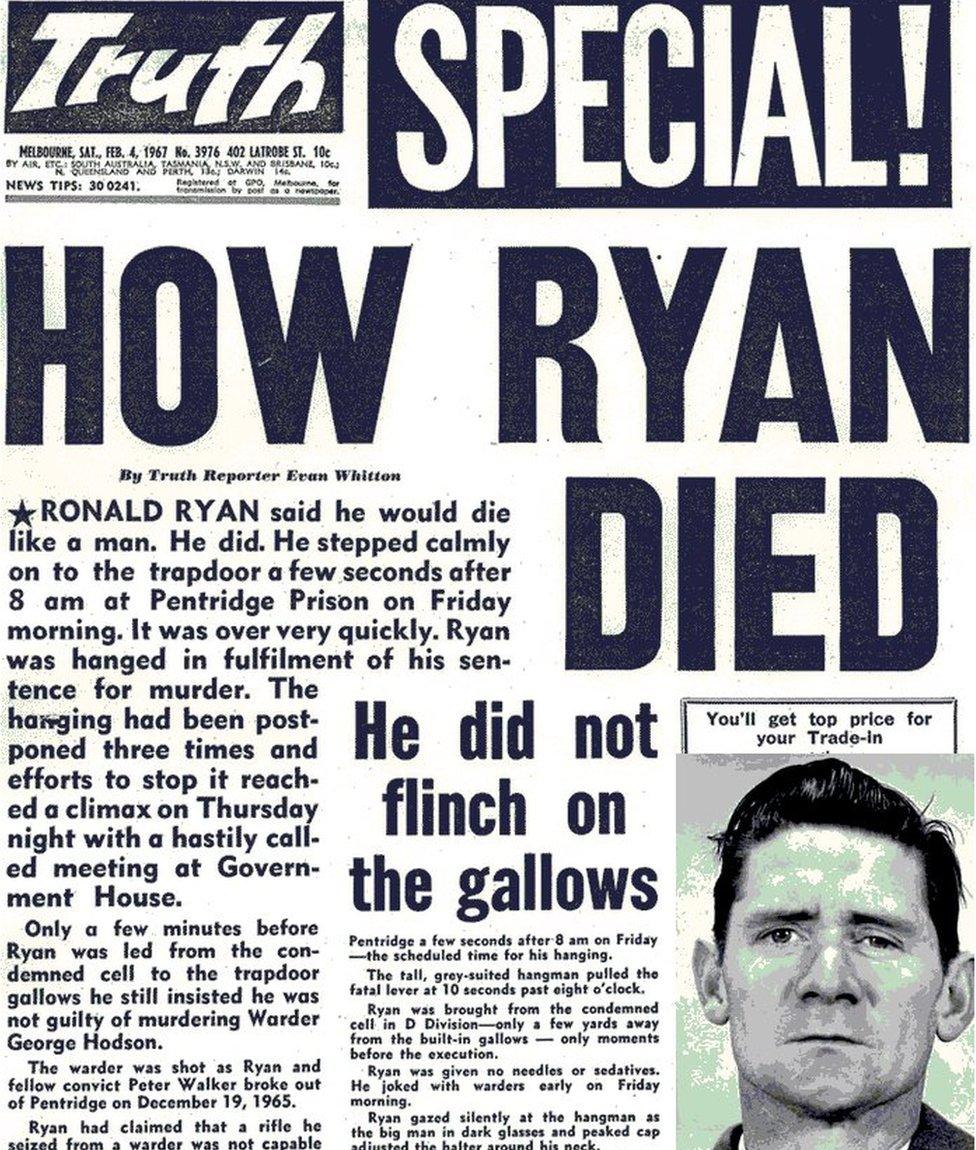
Ronald Ryan was the last man to hang in Australia
Fifty years ago, Australia carried out its final execution amid a swirl of protest and political pressure. But as Jamie Duncan reports, capital punishment remains firmly in the nation's consciousness despite the abolition of the death penalty.
Ronald Joseph Ryan was a robber with a long criminal record.
On 3 February 1967, Ryan was hanged for the murder of prison warder George Hodson as he escaped Pentridge Jail, in the Melbourne suburb of Coburg.
As the guards took turns to attend a staff room Christmas party on 19 December 1965, Ryan and accomplice Peter John Walker scaled a 5m (16ft) wall, with blankets attached to a hook.
They overpowered a guard, stole guns and forced the guard to open a gate.
Mr Hodson was shot in the chest and died in the middle of a busy road outside the jail while trying to grab Walker.
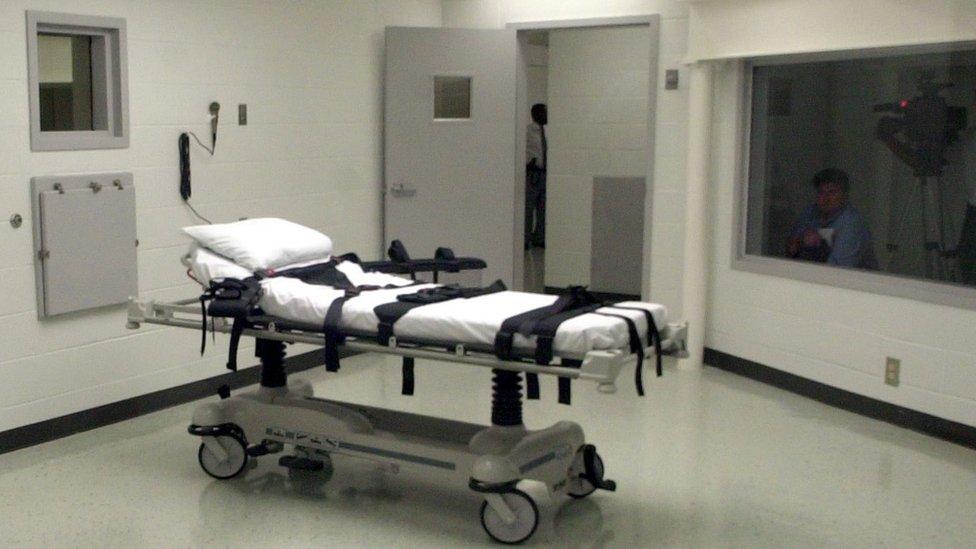
While Australia has long abandoned capital punishment, it is still widely used elsewhere, including the US
Ryan and Walker escaped but were re-captured in Sydney on 6 January 1966.
Eleven witnesses said they saw Ryan fire the fatal shot, but a warder testified that the only shot he heard was his own. He said he was aiming for Ryan but fired over Ryan's head to avoid a woman who blundered into the way.
After 12 days of deliberation, a jury found Ryan guilty of Mr Hodson's murder and the judge, Justice John Starke, who was opposed to capital punishment, pronounced the mandatory death sentence for the crime.
Walker was found guilty of two counts of manslaughter - that of Mr Hodson and the shooting death of acquaintance Arthur Henderson while on the run.
At the time in the state of Victoria, the government's cabinet determined the fate of condemned prisoners.
The last executions in Victoria occurred in 1951, when Jean Lee - the last woman hanged in Australia - and her two male accomplices were executed for torturing and murdering a 73-year-old illegal bookmaker.

Support for capital punishment has, with periodic reversals, declined in Australia
Between then and 1967, Liberal and Labor cabinets commuted all but one of 35 death sentences to life imprisonment.
The exception was Robert Tait, who murdered an 82-year-old woman. The government's refusal of clemency was overturned in the nation's High Court.
Members of Victorian Premier Sir Henry Bolte's cabinet were known to be opponents of capital punishment, but Sir Henry ensured his team refused to commute Ryan's sentence.
Years later, juror Tom Gildea said while the jury was convinced of Ryan's guilt, none believed he would hang, and seven later wrote to cabinet seeking clemency for Ryan.
The conservative-leaning Melbourne Herald campaigned for Ryan's life. In a January 1967 editorial, it said: "The state government's insistence on this final solution is causing the deepest revulsion. It is punishment in its most barbarous form. And experience has shown it gains nothing but dishonour for the community which inflicts it."
Mass protests in sizes never before seen in Melbourne had no effect on Sir Henry. Ryan, almost 42, was hanged at Pentridge at 08:00 with hundreds of protesters outside the jail.
Queensland was the first Australian state to outlaw the death penalty, in 1922. Victoria followed in 1975 and New South Wales (NSW) was last, in 1985.
But whenever egregious crimes have shocked Australians, the question of a return to capital punishment is raised.
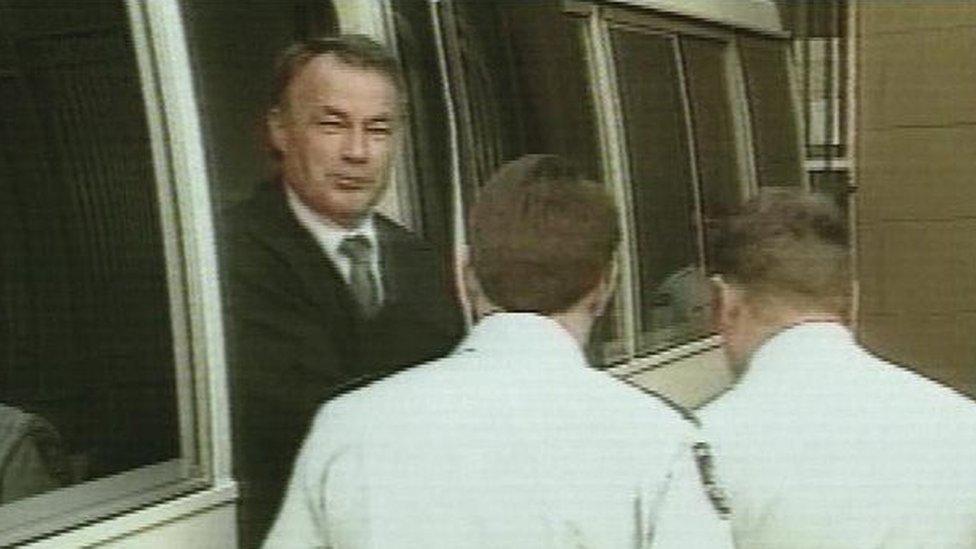
The case of Ivan Milat, responsible for a series of so-called "backpacker" murders, prompted calls for the death penalty
It happened after Martin Bryant shot dead 35 people at Port Arthur in Tasmania in 1996; the fire-bombing of Brisbane's Whiskey Au Go Go nightclub by James Finch and John Stuart in 1973, which killed 15; and the 2012 rape and strangulation of Jill Meagher, 29, by Adrian Ernest Bailey.
The death penalty was raised over the 2003 kidnapping and murder of Daniel Morcombe, 13, on Queensland's Sunshine Coast, by Brett Peter Cowan; Julian Knight's 1987 Hoddle Street massacre in Melbourne; and Ivan Milat's "backpacker" murders in NSW in the 1980s and '90s.
Even this year, talk has resurfaced after a car was allegedly deliberately driven down a Melbourne pedestrian mall, killing six people and injuring dozens. Dimitrious "Jimmy" Gargasoulas, 26, faces murder and other charges.
Crusading commentator-turned-politician Derryn Hinch opposed capital punishment for decades before the horrific rape and murder of Sydney nurse, Anita Cobby, by five men, including three brothers, in 1986.
Hinch, a senator who heads his own Justice Party, says the death penalty should apply in cases such as Knight's, where no doubts exist.
"If Australia had the death penalty, a lot of young women could be alive today," Hinch wrote in 2012.
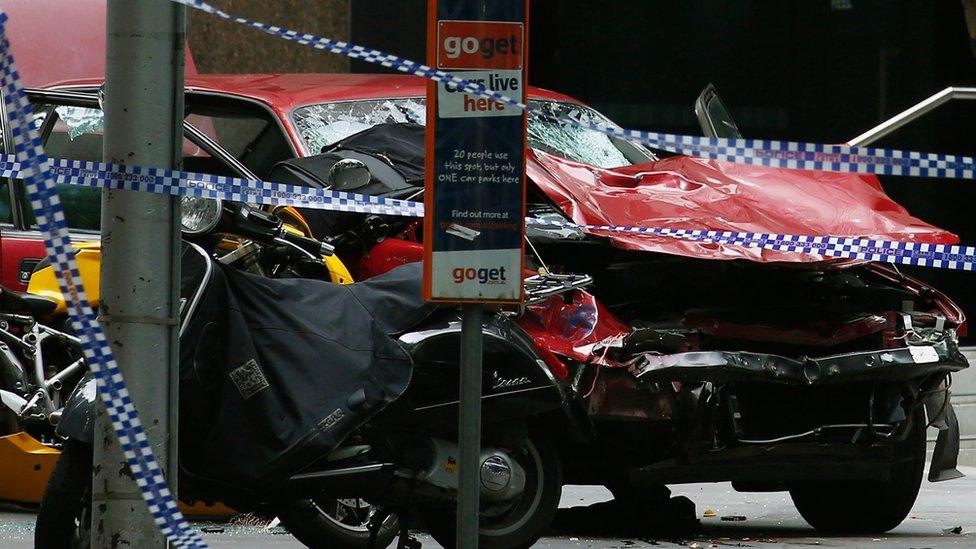
The recent case of a motorist accused of deliberately killing people in Melbourne has shocked the nation
"Mersina Halvagis (fatally stabbed as she tended her grandmother's grave in Melbourne in 1997) would be alive today. Her killer, Peter Dupas, would have been executed after his first murders. If sex offenders served their full term behind bars, Jill Meagher could be alive today," he said.
"If our touchy-feely parole boards spent half as much time considering victims and their families as they do to rushing serial, violent criminals back on to the streets, this world would be a safer place. And if a federal government had the guts - or a state government had the independence and backbone - to hold a referendum on the return of capital punishment for some crimes, it would pass by a majority of about 75% to 25%."
Maybe not. Polls from Roy Morgan Research between 1947 and 2009 suggest capital punishment supporters may be a vocal minority.
Respondents were asked whether they favoured the death penalty or imprisonment in murder cases.
In 1947, 1953 and 1962, a sample of 1,000 voters aged 21 and over found they favoured capital punishment 67% to 24%, 68-24% and 53-37% respectively, with the remainder undecided.
There was no poll around Ryan's 1967 execution. From the next survey in 1975 until 2009, the sample of 1,000 included anyone aged 14-plus.
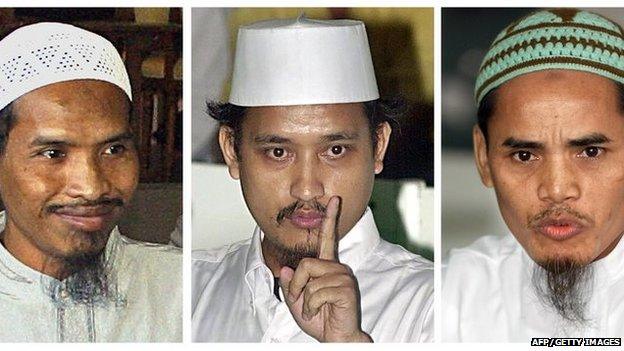
Many Australians wanted the Indonesians responsible for the 2002 Bali bombings executed
In 1975, support for capital punishment fell behind, at 40%, to 43% against, but by 1980 it was on top again at 43-40%.
The gap slowly widened. By February 1989, death penalty supporters had an absolute majority (52-34%) peaking at 54-36% in 1993.
But there was a dramatic swing in the decade between surveys in 1995 and 2005.
In 1995, there was still absolute majority support for the death penalty, with 53% in favour and 36% against.
But in November 2005 - seven months after the arrest in Indonesia of the Bali Nine heroin traffickers following an Australian Federal Police tip-off - only 27% supported it, with 66% opposed. A month later, support slipped further, to 25% v 69%. By August 2009, the last survey, it dropped yet again to 23-64%.
A 2014 text message poll of 1,307 people, asking whether anyone who commits a lethal act of terror in Australia should face the death penalty, showed narrow support for the proposition - 52.5%, with 47.5% against.
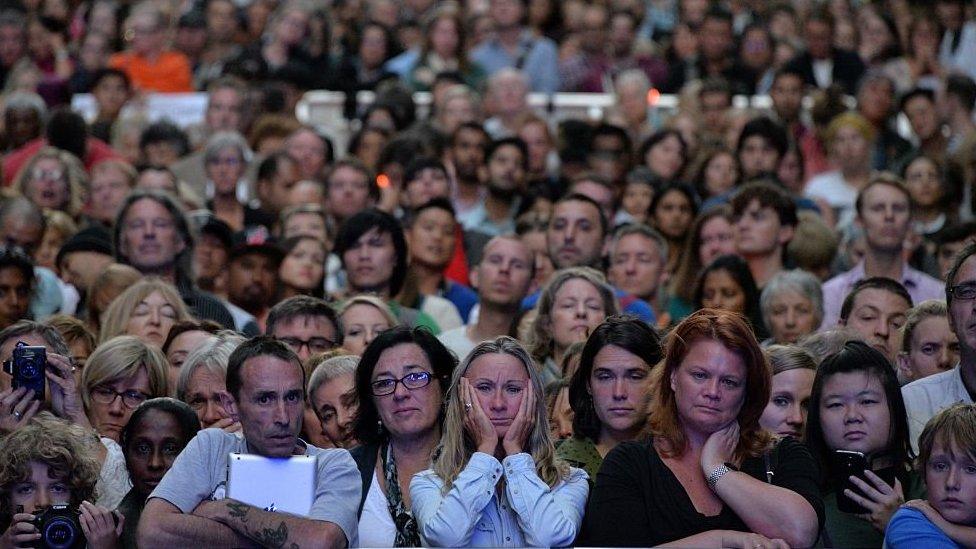
There were large vigils held in Australia to plead for the lives of the Bali Nine ringleaders
Dr Amy Maguire, lecturer in law at Australia's Newcastle University and capital punishment opponent, says the executions of Bali Nine drug smugglers Myuran Sukumaran and Andrew Chan may have changed Australian attitudes.
Prior to this, Ronald Ryan's execution was at best a dim memory.
"My sense is that the Chan and Sukumaran case enlightened some numbers of Australians who may previously been fairly unconcerned about the use of the death penalty overseas for people convicted of drug offences," she told the BBC.
"As well as having strong advocacy at government level, the families and friends of Sukumaran and Chan bravely conveyed their grief publicly and demonstrated that capital punishment is effectively torture not only for the person executed but also for their loved ones.
"The argument that Sukumaran and Chan had worked very hard to rehabilitate themselves and would be more fairly sentenced to life or many years in prison was, I think, fairly persuasive to many people."
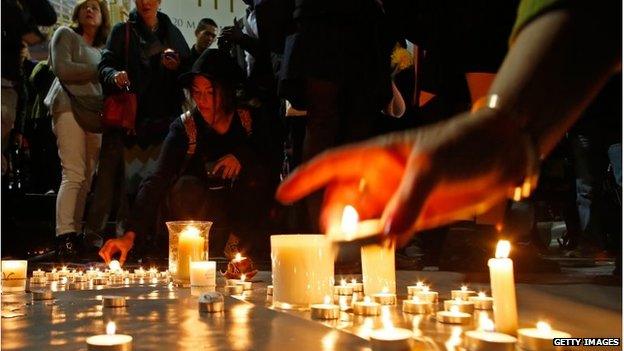
A majority of Australians opposed the death penalty for drug smugglers Chan and Sukumaran
While there remains a significant proportion of Australians who support capital punishment, Dr Maguire believes no Australian government will ever re-introduce it.
"No, I believe Australia is very firmly committed to the abolition of capital punishment, and in fact the Bali executions galvanised the government into building a firmer platform on which to advocate for abolition globally. Australian law is unequivocally against the death penalty," she said.
There are legal barriers, too. In 2010 the federal government passed laws banning the reintroduction of capital punishment, in line with a voluntary international treaty.
But 50 years on, Ronald Ryan's execution and tension over how best to deal with heinous acts that were once capital crimes, echoes through Australia's judicial system.
- Published1 February 2017
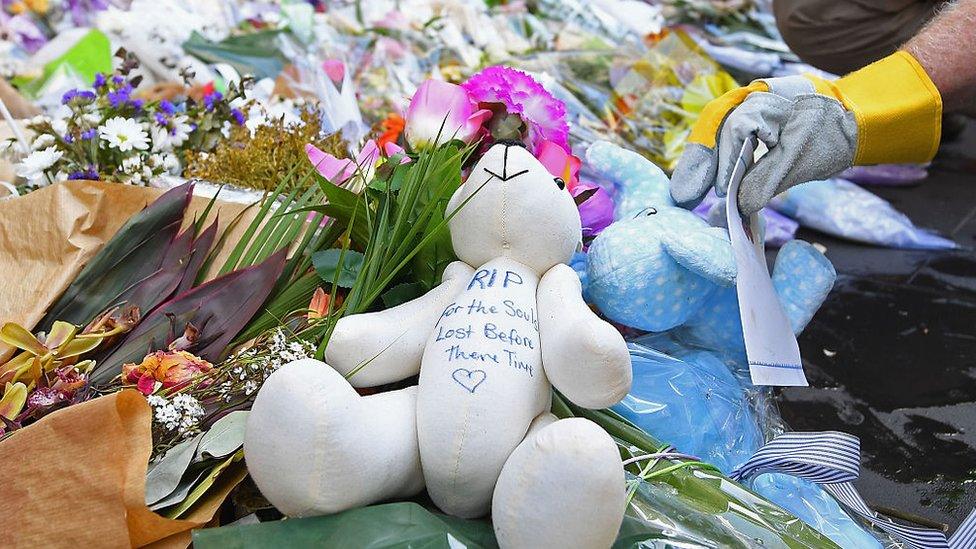
- Published21 December 2016

- Published4 May 2015
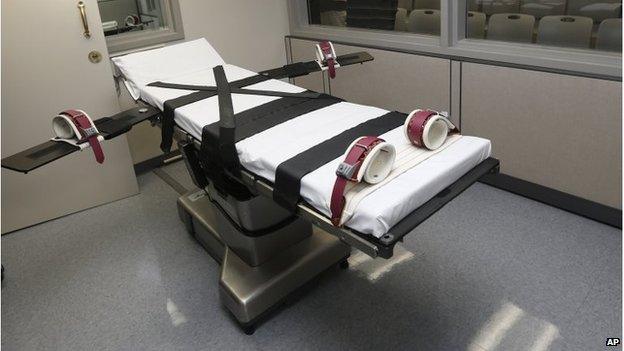
- Published30 April 2015
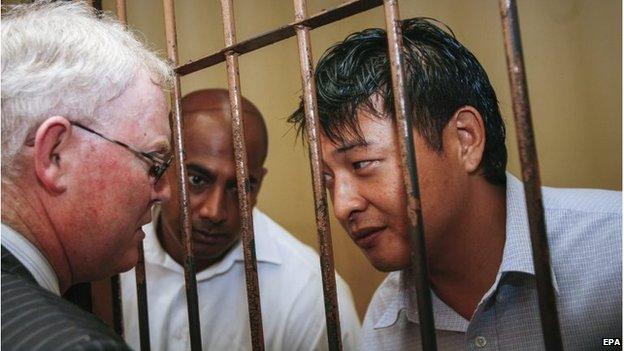
- Published29 April 2015
